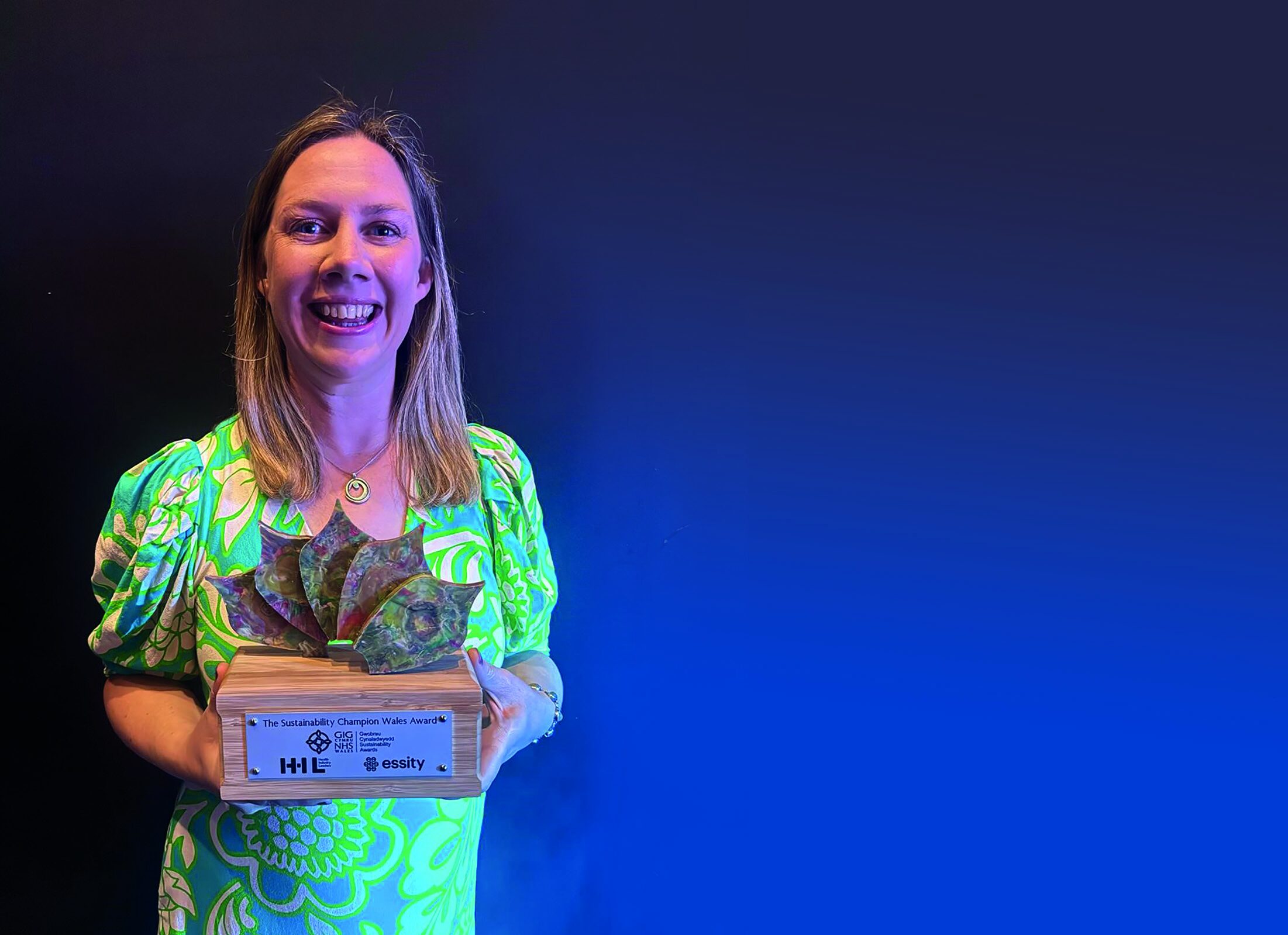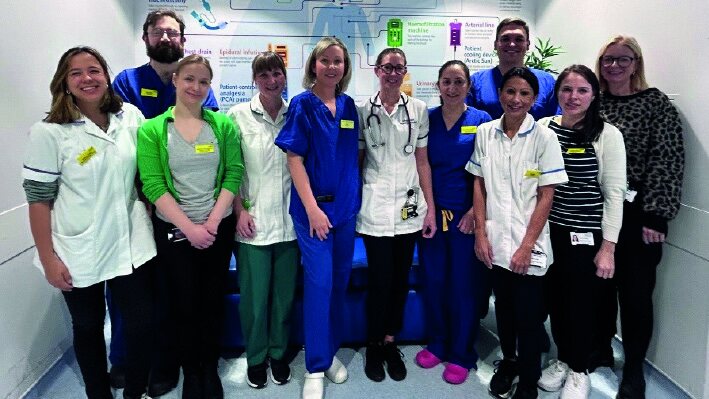
Above: Annie Hill
Annie’s sustainable approach helps patients and the planet
A Swansea Bay OT is blending therapy and environmental care, using litter-picking and gardening to support recovery while helping the planet.
Annie Hill, Team Lead in OT for adult mental health, has championed green initiatives such as litter picking in local parks and beaches and weekly visits to the Cae Felin Community Supported Agriculture project.
‘Patients and staff enjoy both the wellbeing aspect of getting outdoors in nature, as well as the opportunity to engage with meaningful activity, which also educates patients to think about food and their diet in a more sustainable way,’ Annie said.
Her innovative approach has gained national recognition, and she was awarded Sustainability Champion Wales at the NHS Wales Sustainability Awards. She has also co-founded a Sustainability Champions Network within Occupational Therapy.
Annie’s initiatives highlight how occupational therapy can deliver person-centred, preventative care that is both cost-effective and environmentally responsible. Her work demonstrates how engaging patients in green activities not only boosts confidence, wellbeing and recovery, but also benefits the local environment.
‘Litter picking is now being considered as a therapeutic intervention across different services, as well as part of staff wellbeing sessions,’ she added.
Through her passion, Annie is inspiring peers, patients and communities to see sustainability as central to healthcare.
Tunbridge Wells Hospital achieves UK’s first HU-CI certification for humanised intensive care

Above: Staff from Tunbridge Wells Hospital ICU
Tunbridge Wells Hospital has become the first in the UK to receive the HU-CI (Humanising Intensive Care) Certification of Good Practices.
Awarded by the international HU-CI Project, the certification recognises intensive care units (ICUs) that meet 160 standards of good care aimed at supporting the holistic wellbeing of patients, their families and healthcare professionals.
Tunbridge Wells ICU was commended for a range of initiatives, including a fully accessible garden for patients, an open-door policy for relatives, and personalised support for those with language or communication needs. Visits from family pets were also facilitated to enhance emotional wellbeing.
Occupational therapists played a key role in creating a therapeutic and patient-centred environment. Their contributions included the use of meaningful activity, access to natural light and outdoor space, and non-pharmacological approaches to managing delirium.
To promote wider adoption of the HU-CI framework, the multidisciplinary team presented their experience at the Intensive Care Society’s State of the Art Conference in Birmingham in July 2025.
This certification marks a significant step in embedding compassionate, patient centred and humanised care in critical care practice across the UK.